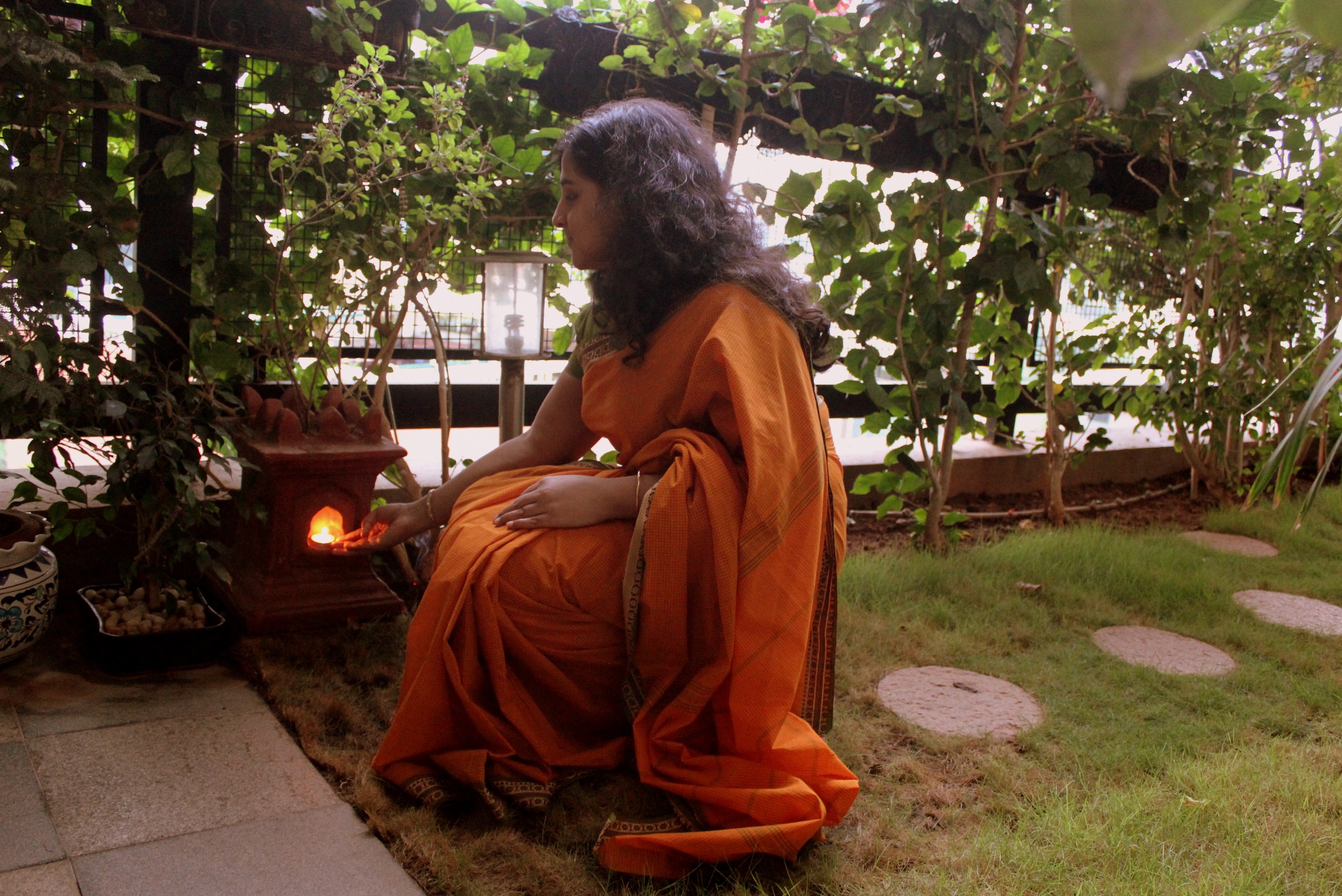My kolkata diaries
As I wear a rust and green andhra cotton sari this evening, my mind cannot help but fly to this glorious I-wish-it-never-ended afternoon adda with cousins and aunts in Kolkata. This is my recollection of snatches picked up during the adda.
A day in a colossal joint family in South Calcutta in the seventies or the early eighties.
The usually laidback household was vibrant and electric this morning. It was the day Basakbabu, the family weaver was to make his half-yearly sojourn to the household and the ladies were as excited as kids before a long-awaited school picnic.
The patriarch of the house, on his fifth cup of sugary milk tea since morning, as he read and re-read the news of the day, animated, sometimes seething with anger, sometimes shaking his head in despair, was nudged yet again by the matriarch. “Ogo (address of wife to husband) go to the market. We need to be done with the cooking and the cleaning before Basakbabu comes over. He has to return all the way to Shantipur.”
The maids of the household, dusting the mahagony furniture, eavesdropping on conversations, get a violent tongue – lashing. “Have you set the oonoon (earthen oven) on fire ? Have the rice and dal been washed ? Whiling away since morning. I am telling you again don’t test my patience.”
Cooking is hurried today. The menu simple, rice, dal and the staple maachher jhol (fish curry) – far removed from the usual elaborate feasts.
Basakbabu comes in. He’s middle – aged, dark, in his trademark white shirt, the pocket soiled by that errant ballpoint pen refill and white dhoti, a paan lazily nestled within his mouth.
He is accompanied by two young assistants, barely in their twenties, who carry the piece de resistance for this humid monsoon afternoon – an oversized bundle wrapped in white cloth.
Greetings. Pleasantries. Some casual conversation. After all Basakbabus family has been supplying saris to the household for as long as anyone can remember.
“My son is not interested in my loom Ma (respectful address to matriarch of the household). He wants to come to Calcutta and start a business with his friends.”
“Business is no longer the same. Families as yours are sadly disintegrating. They are selling off their ancestral houses and becoming nuclear.”
“I cannot repay Babus (respectful address to patriarch of the household) debt ever in my life. Without his help, our family would have perished.”
Finally arrives the moment of truth. The knot to the bundle carefully opened by the assistants.
Handloom cotton sarees.
In radiant reds and majestic maroons.
In pretty pinks and august violets.
In peacock blues and parrot greens.
“That’s so pretty. Shall suit your daughter so well !!!”
“My aunts golden anniversary next month. I’ll pick this one for her.”
“Basakbabu, don’t you have that shade of lime green I got last time ? Everyone who saw it loved and admired it.”
“I’ll borrow this from you when you’ve worn it once.”
The conversations continue. Animated. Spirited. Happy. The babble of children in a candy – shop. Giggles. Grins. Hushed tones and loud laughter. Away for once from the hectic humdrum of running a household.
The selection of saris is finicky, peppered with elaborate fuss and frequent now-I-love-it-now-I-dont anxieties. After all, it’s not just for yourself that you buy saris. You buy them for your daughters and daughters-in-law. Your aunts and nieces. Your goddesses. Or often for you-don’t-yet-know-who.
Time flies. On rosy wings. Sugary milk tea and Marie biscuits do the rounds. Basakbabus stack of saris becomes smaller and smaller. The pride of the creator shows on his face, a delightful expression that displays a coy relish of gratification on a surface of humility.
Someone in the neighbouring Mukherjee household blows a conch. The neem tree becomes abuzz with garrulous parakeets. The street lamps come up one by one.
The ladies get up and leave. Time for the evening puja and preparation for dinner.
Basakbabu waits for the patriarch to return home and clear his dues. And then catch the last train to Shantipur.

